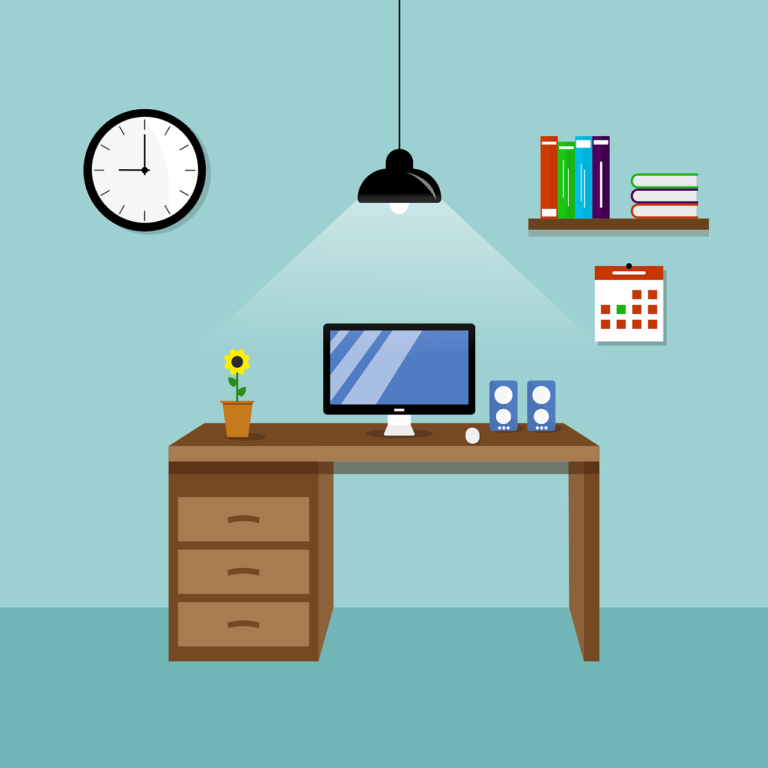With a huge proportion of the UK’s workforce being advised to work from home, many of us have been forced out of our comfort zone and are frantically trying to reconcile our work and home life. What seemed like a novelty at first, is starting to take its toll. Nine weeks into lockdown and for some, the edges are starting fray.
We’ve spoken to our team members – some clinical, some admin – to see how they’ve been coping with the change of environment. Here are their top tips on how to maintain mental wellbeing whilst working from home.
1. “I like to move it, move it”. Taking some sort of daily exercise will increase motivation and make you feel more alert. A short walk, running up (and down) the stairs or taking part in ‘PE with Joe Wicks’* is enough to raise your heart rate and release those endorphins. (* other online workouts are also available), or why not start a challenge with friends? We recently completed a virtual Three Peaks Challenge as a team, find out more about this here.
2. Create a routine. No, not a gymnastic one (although that would help you achieve number 1!) Sticking to some sort of routine will help you put some sort of structure to your day and increase productivity. Find a few things that work for you and then repeat.
3. Do the worst thing first. Everyone procrastinates and puts things off, it’s human nature. When you’re not under constant supervision, it can be even harder to get motivated. Try and do the worst thing on your list, first and then it doesn’t get ignored and pushed to the next day (or the next). Avoid the feeling of dread and get it out of the way.
4. Reach Out. If you are used to working in a team, you’ll miss the camaraderie and office chat. Working from home can be lonely, especially if you aren’t surrounded by family. Connect regularly with colleagues and customers. Pick up the phone, try a visual platform where you can see each other’s faces – connect, connect, connect. Share your work results, share your worries and mark all the occasions you would have done ordinarily – birthdays, anniversaries, employee of the week. Virtual drinks won’t be quite as good as being there in person but at least you won’t need to get a taxi home.
5. Eat Healthily. Just because you are at home, doesn’t mean you need to fall into bad habits. Eat and drink healthily and you’ll feel better for it. Arrange to take your lunch break at the same time as a colleague and meet on skype or zoom – it will not only give you chance to connect (see point 4) but it’s also harder to hide those crisps and that enormous donut…
6. Hydrate. Not drinking enough leads to lethargy, headaches and increased stress. Keep caffeine to a minimum and stay hydrated with lots of water. You may not be able to congregate round that water cooler anymore, but you do have access to a tap and a fridge!
7. Take regular breaks. Sitting for long periods of time at a screen can put strain on your eyes and leave you feeling stressed out. Take regular breaks to get some exercise, fresh air or just a glass of water. You’ll be surprised at how much it helps to lift your mood or shift your perspective.
8. Work / home divide. Many people are finding it hard to separate their work life from their home life. This is a tricky one because right now our homes are our everything. Our previous roles and areas of responsibilities have moved; they are overlapping or merging into one. If you can, separate your work / home life physically by working in a different room or sticking to regular working hours. But if neither of these options is available to you, you may have to get creative in order to reinstate those divisions. Perhaps you can tidy your work things into a large box or cupboard at night. Even getting changed into different clothes at the end of your ‘shift’ could give you some separation. Experiment and see what works for you.
9. Looking good! Get up, get dressed and do whatever it is you need to do to make yourself look good. If you look good, you’ll feel good. Just because you’re not seeing people doesn’t mean you have to live in your pyjamas (unless of course, that’s what makes you look and feel good, and in that case, it’s an absolute must!).
10. Get plenty of sleep. Everything feels better when you’ve had a good night’s sleep. Fact. And it also helps with number 9. You’ll have more energy, you’ll be more patient and you’ll function more efficiently.
11. Fresh Air / Sunlight. No work commute and limited outdoor activity means we are getting less sunlight and less fresh air. Try and take your allowed daily exercise every day if you can and if you are lucky enough to have a garden, take regular breaks. Notice your surroundings, breathe in that air and feel the sun on your face. It WILL make a difference.
12. Tidy desk / tidy mind. Cliched but true. Keep your workspaces, desktop and inbox clutter free. Maintaining a handle on small, easy-to-manage tasks will help you feel less anxious about all the uncertainty and things over which you have no control.
13. Share your worries with your manager. It is always important to share your worries or concerns with your manager if you want to maintain your mental health. But now, more than ever, take the time to discuss anything that might be bothering you. It will not only ease your mind but may help other colleagues who are also feeling the stress but not able to speak out. Missed deadlines and poor performance may not get picked up as quickly as if you were in an office. Don’t let things prey on your mind. Speak up.
14. Online Training. If you have time in the day, now is a great time to do some online training. This could be related to your role, or something completely different. Training will build your confidence, help to establish purpose and the achievement of learning something new will boost your mood if you are feeling low.
15. Be realistic about what you can achieve. Set realistic targets and deadlines and constantly review. Don’t put too much pressure on yourself. With everything that is going on it is unlikely that you’ll be as productive as normal. If you are feeling pressure from above, talk about your concerns with a manager.
16. Experiment. This situation is unprecedented so there is no ‘standard’. Readjust, be open to new ways of doing things and accept that not everyone is going to handle the new ‘normal’ in the same way. This is a learning curve for everyone and a chance to make up your own rules. Find what works for you.
17. Nothing compares to you. Don’t compare yourself to others. Yes, ‘we are all in this together’, but everyone is different. Try and focus on you and your loved ones. Look after your mental health. There’s no point in escaping infection, if you become ill due to unnecessary stress.
And finally,
18. Accept that there are going to be good days and bad days. And that that’s OK. Remember, you’re not ‘working from home’ – you are doing your job in unconventional circumstances, in an unconventional location in unconventional ways.
Give yourself a clap.
In order to protect our staff and our clients, Choose Occupational Health are adapting operations in line with government advice. Many of our clinics and face to face appointments have been suspended but we are still offering telephone consultations and appointments where available. A limited number of regular services are still operating where needed. Please contact us on 01228 513687 for further information. Stay safe.

